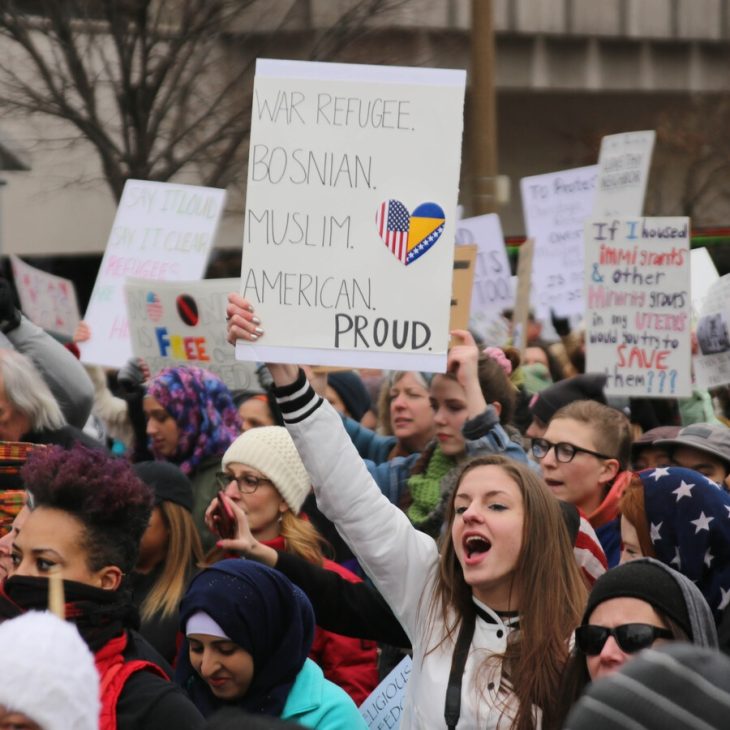Election Is Chance to Fight Bigotry Against Muslims, Sikhs
November 3, 2020

Simran is a Soros Equality Fellow at the Open Society Foundation, a Visiting Professor at Union Theological Seminary, served on presidential candidate Joe Biden’s AAPI Faith Advisory Committee, and is an Interfaith America Racial Equity Media Fellow.
With Election Day upon us, I keep thinking back to the time I ran the New York City Marathon in 2016.
That day, it was two days before President Trump got elected. At multiple points, spectators pointed to my turban and shouted hate speech. A volunteer even refused to serve me water, calling me “a filthy Muslim.”
Although I am Sikh, not Muslim, both groups are vulnerable to bigotry and bile. And when I see officials targeting other groups protesting discrimination, I get a nagging sense that we are moving backwards as a country.
Share
Related Articles
Interfaith Inspiration
Virtual Communities are Critical Lifelines for Transgender Sikhs
American Civic Life
We Commemorate, We Commit: Out of Catastrophe, a Conversation on Connection and Repair
American Civic Life
20 Years of The Sikh Coalition: How 9/11 Catalyzed A Civil Rights Movement for Sikh Americans
Since Trump’s election, things have indeed gotten worse.
Since Trump’s election, things have indeed gotten worse.
Since Trump’s election, things have indeed gotten worse. Violent hate crimes, especially against Muslims, are at their highest level since the aftermath of 9/11. The November election is a chance to move in a new direction, away from bigotry and toward dignity.
As you’ll find from a casual glance at your social media feed — or, if you’re Muslim, a stroll down the street — our country is at a dangerously polarized moment. Trump twists the knife in our divisions rather than healing them. He has encouraged Americans to pull up the gates not only to immigrants but to everyone who doesn’t look, think, or pray like the majority.
Yet our country is facing legitimate policy problems. We can’t solve them unless we draw on our diverse strengths.
Take violence, for instance. We have seen mass shootings in homes, workplaces, and schools — often in white areas. There has been a surge in gun violence in American cities during the COVID-19 pandemic — often in Black areas. We’ve had bombings, shootings and other hate crimes in houses of worships, targeting groups including Muslims, African Americans, Jews, and Sikhs.
Addressing violence requires the voices of all who are affected by it. No group has the cultural expertise to do it alone.
The presidential candidacy of Joe Biden gives me hope we can move in a more inclusive direction. After all, he picked Kamala Harris to be the first Black and South Asian American woman on a major party ticket. He has planks of his agenda devoted to supporting Muslims and South Asians. Trump cannot say the same.
Biden is showing that his administration will invite Americans of all backgrounds to bring their unique talents and viewpoints to bear on the problems our nation faces.
Some may dismiss the idea of a unifying politician as mere pablum. But hundreds of religious leaders, including me, have endorsed Biden. We believe there’s been enough fear-mongering, scapegoating, and blaming. This November, I hope for nothing more that we seize the opportunity to fight bigotry and support our common humanity.



